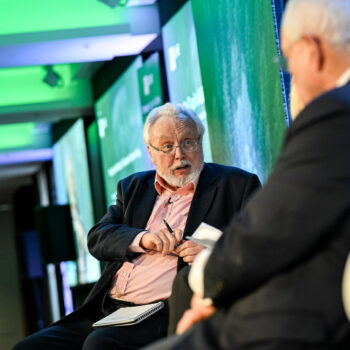The speech on Tuesday by Mark Carney, the Governor of the Bank of England and Chairman of the Financial Stability Board is a game changer for climate change. Whatever you thought about the politics or economics of climate change yesterday is now outdated. The world really did change, not because of what was said, but because of who said it.
Scientists and environmental policy makers have been talking about the risks to prosperity and security of a failure to meet the goal of keeping the rise in global temperature below 2°C for some time. Recently they have been joined by a growing number of voices from within the military in the United States, Britain and elsewhere.
But the addition of the voice of one of the world’s most prominent central bankers adds a different dimension to the conversation. The Financial Stability Board was set up in the aftermath of the financial crisis of 2008. Its task is to advise the governments of the G20 group of countries, the world’s largest economies, of threats to the stability of the world’s financial system.
Essentially, what Mr Carney said in his speech was that a failure to keep the global temperature rise below 2°C was a threat to financial stability. He went on to say that the more the temperature rises, the greater that threat. He also pointed out the nature of the problem was such that if we waited for instability to occur before we acted it would be too late to do so.
This speech will have many consequences for the politics of climate change as we run up to Paris and beyond. Two that immediately strike me as important are the shift it will make in the locus of climate policy within governments and the impact if will have on investor perceptions.
After maintaining external and internal security maintaining financial stability is one of the top priorities for any government. If, as Mr Carney is saying, climate change is a growing threat to financial stability then finance ministries rather than environment ministries will be the key influence on policy formation. This will lift the profile and the political weight of the issue and thus, over time, add to the already growing pressure of governments to act effectively.
The Carbon Tracker Initiative has already had a significant impact on investor perceptions of the fossil fuel industries, especially coal. Its claim that there was a risk of significant fossil fuel assets becoming stranded was explicitly endorsed by Mr Carney. Over time this will lead to the cost of capital for fossil fuel projects rising and that for low carbon technologies falling.
The political risk equation of climate change for governments has been changing slowly for some time. As the rising temperature has generated more extreme weather events and other impacts so the political risk of inaction has grown. Meanwhile, the falling cost of low carbon technologies has lowered the political risk of timely action. Mr Carney’s intervention has accelerated the rate at which this equation is changing.
Read this speech in German


